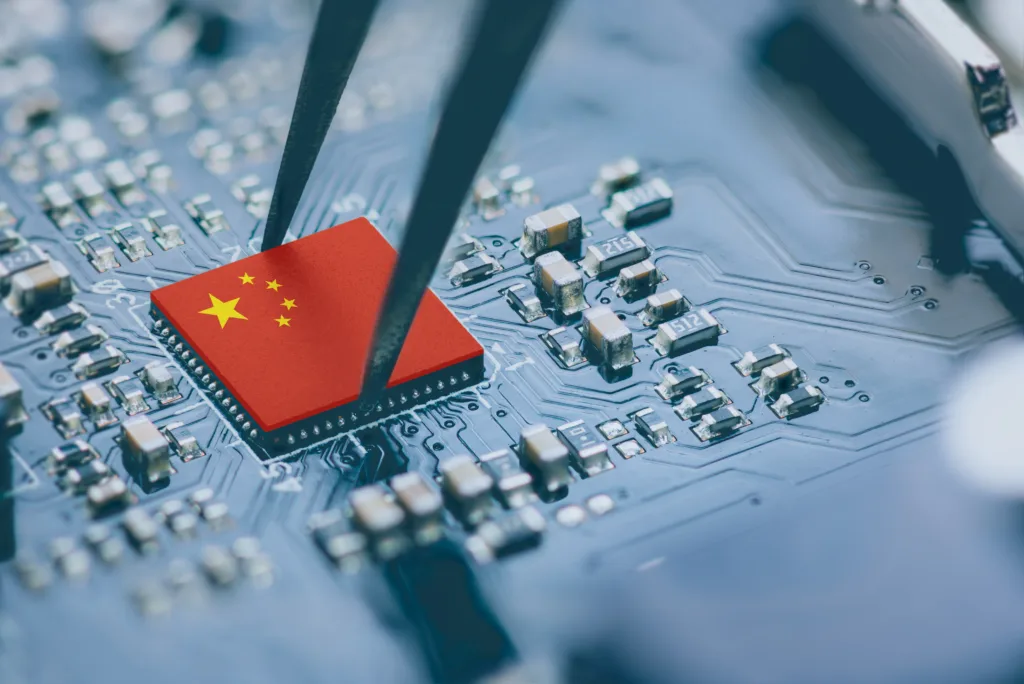Artificial intelligence has been a hot topic for decades—but according to top investors, its defining moment is now.
From reshaping industries to redefining human potential, AI is no longer just a promise–delivering tangible, world-changing impact. Here’s where five of the most influential investors believe the technology is headed next.
1. Marc Andreessen
Andreessen Horowitz: Co-Founder and General Partner
“AI is quite possibly the most important—and best—thing our civilization has ever created, certainly on par with electricity and microchips, and probably beyond those. Here’s why:
AI is a way to make everything we care about better. It will revolutionize education by providing every student with an infinitely patient, infinitely knowledgeable AI tutor. It will transform healthcare by democratizing access to expert diagnostics and personalized medicine. It will supercharge science by automating discovery and accelerating research cycles from years to days.
As an investor, I see AI as the ultimate capitalist tool—it’s a way to turn intellectual labor into scalable software. The best AI companies won’t just optimize existing markets; they’ll create entirely new ones. Think of Airbnb for physical space or Uber for transportation, but now applied to cognitive work.
Critics warn about risks, but the greater risk is not pursuing AI aggressively. The countries and companies that fully embrace AI will pull so far ahead that others won’t be able to compete. This isn’t just about profit—it’s about civilizational advancement.
The startups I’m backing aren’t just building apps. They’re building recursive self-improving systems that will compound in value faster than any technology in history. If you’re not investing in AI now, you’re effectively shorting human progress.”
– “Why AI Will Save the World” (June 2023)
2. Cathie Wood
ARK Invest, Founder and CEO
“AI is the most transformative technology of our generation—it will drive the largest productivity boom in history, creating $200 trillion in global equity market value by 2030. Here’s why we’re all-in:
Deflationary Shockwave: AI will collapse costs across every sector. Think about autonomous taxis slashing transportation expenses by 80%, or AI doctors reducing healthcare costs while improving outcomes. This isn’t just efficiency; it’s economic rewiring.
Labor Revolution: Contrary to fears, AI won’t destroy jobs—it will democratize expertise. A small team with AI can now compete against Fortune 500 companies. Imagine a solo developer using Copilot to build an app faster than Google’s engineers, or a biotech startup leveraging AlphaFold to outpace Big Pharma.
Convergence Supercycle: AI isn’t operating in isolation. When combined with robotics, blockchain, and energy storage, it will trigger multiple technological supercycles. For example, AI-designed nuclear fusion reactors could solve energy scarcity by 2030.
Winner-Takes-Most Dynamics: The companies that train the best models and own the data flywheels will capture obscene margins—think 60-80% gross profits. But don’t just bet on the obvious giants; the real alpha will come from enablers (e.g., chipmakers, data platforms) and vertical disruptors (e.g., AI-first healthcare, finance).
This is bigger than the internet. If you’re not allocating at least 20% of your portfolio to AI and its enablers, you’re missing the defining wealth creation event of this century.”
– ARK Invest’s “Big Ideas 2023” research report, TedTalk (March 2023)
3. Paul Graham
Y Combinator: Co-Founder, Partner
“AI is the next great platform shift—like the internet in the ’90s or mobile in the 2000s—but it’s happening faster and going deeper. The best startups in this wave won’t just be ‘AI for X.’ They’ll rethink entire industries from first principles, asking: What does this look like if AI exists at the core?
The biggest opportunities aren’t in building foundational models (that’s for well-funded labs). They’re in applications that use AI to do things that were previously impossible or prohibitively expensive. Imagine:
- A law firm where one lawyer + AI can handle 100x the cases.
- A design studio where a solo creator can produce Hollywood-grade animation.
- A tutoring system that adapts to each student in real time, like a human tutor but infinitely scalable.
The startups that win will be those that fully embrace AI’s capabilities, not just tack it onto old workflows. And crucially, they’ll be built by founders who understand AI deeply—not just as users, but as builders who can bend it to their will.
This is the time for the bold and technical. If you’re a hacker with a big idea, there’s never been a better moment to start a company.”*
– Letter #85: Paul Graham and Jessica Livingston & Carolynn Levy (May 23, 2023)
4. Peter Thiel
PayPal: Co-Founder, General Partner Founders Fund
“Most people dramatically overestimate what AI can do in the short term—and underestimate what it will do in the long term. The truth is, we’re stuck in a strange interim period where AI can simulate intelligence but doesn’t truly understand. That’s why the biggest opportunities lie not in mimicking human cognition (which is a dead end), but in creating complementary systems that do what humans fundamentally cannot.
For investors, this means two things:
Avoid the crowd. The worst place to be is in the middle of the AI hype cycle—funding the 100th chatbot startup or me-too LLM wrapper. The real breakthroughs will come from unfashionable areas: AI for nuclear fusion design, algorithmic law, or even geopolitical forecasting.
Seek monopolies. AI will accelerate winner-take-all effects. The best AI companies won’t just be 10% better—they’ll be 10x better, creating markets where competition is impossible. Look for teams building recursive self-improving loops (e.g., AI that designs better AI chips).
But here’s the paradox: The more powerful AI becomes, the more we’ll need human judgment to direct it. Technology doesn’t automate away purpose—it amplifies the need for it. The defining companies of the next century won’t be those that replace people, but those that align machine capabilities with human will.”
– Founders Fund Investment Thesis (2020)
5. Mary Meeker
Bond Capital: Founder, General Partner
“We’re in the early innings of AI’s transformative potential—a shift comparable to the advent of the internet or mobile. But what’s different this time is the velocity of adoption and the breadth of impact. The data tells the story:
Enterprise Adoption Tipping Point: In 2019, only 10% of companies had deployed AI at scale. By 2023, that number crossed 50%, driven by plummeting compute costs (down 10x since 2018) and open-source model proliferation. The ROI is undeniable: AI-first companies see 30-50% faster revenue growth than peers.
Vertical Disruption: The biggest opportunities aren’t in horizontal platforms (where Big Tech dominates), but in industry-specific AI—think AI that cuts drug discovery timelines in half or optimizes agricultural yields by 20%. Startups that own proprietary datasets in these niches will build unassailable moats.
Global Rebalancing: The U.S. and China dominate foundational AI research, but the next wave of value will flow to applications—and here, emerging markets could leapfrog. Imagine AI-powered healthcare in India skipping legacy systems entirely, or African fintechs using chatbots to serve unbanked populations.
Productivity Paradox Solved: For decades, tech failed to move the productivity needle. AI changes that. Early data shows AI-powered workers are 30-40% more productive—but the gains aren’t evenly distributed. The firms that reengineer workflows around AI (vs. just bolting it on) will pull ahead permanently.”
– CNBC Interview (May 30, 2023)

About the Author: Tess Danielson is a journalist and writer focusing on the intersection of technology and society.
Get on our radar for an investment.
Beta Boom invests in founders who don’t fit the traditional Silicon Valley mold.

